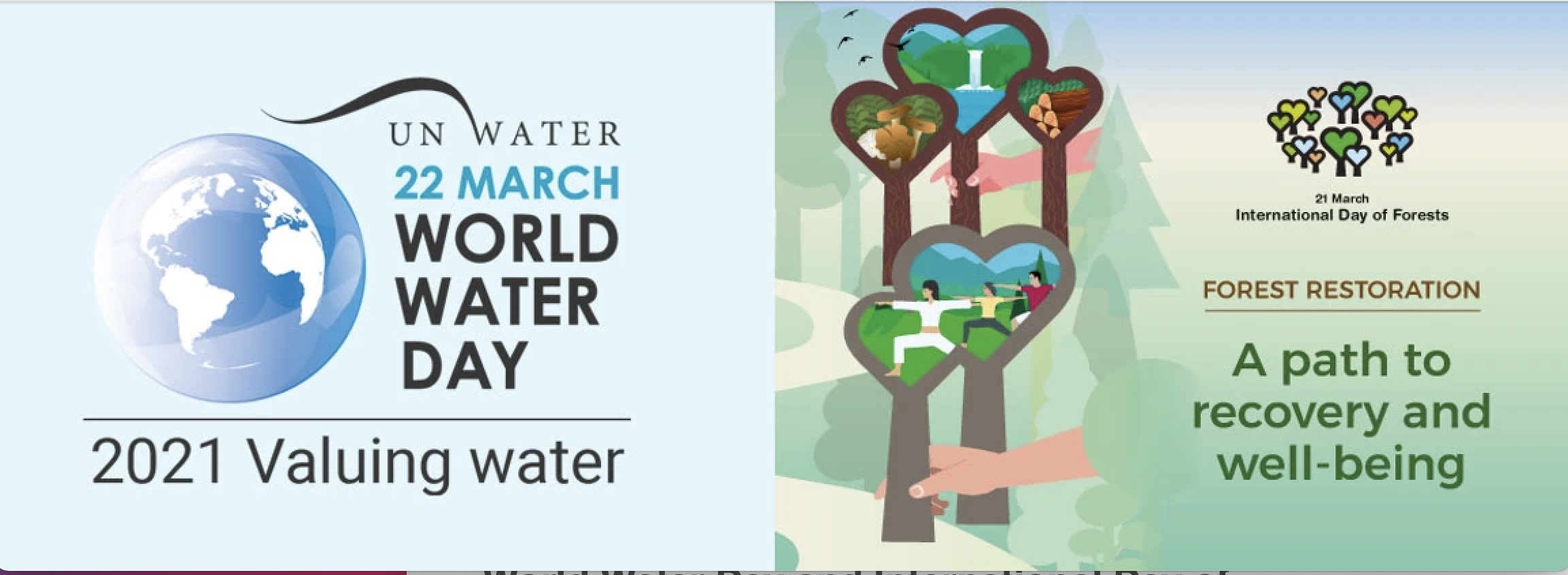World Water Day and International Day of Forests Observance

Monday, March 22, 2021 — The United Nations General Assembly proclaimed 21 March the International Day of Forests (IDF) in 2012 and 22 March, World Water Day (WWD) in 1993. These global annual observances are being held to raise awareness on the importance of water and all types of forests.
The International Day of Forests (IDF) theme for this year “Forest Restoration: a path to recovery and well-being,” is intended to focus on the valuable benefits of forest restoration to human health, food security, environmental and climatic condition, provision of green jobs, stakeholder engagement, and healing. The theme of World Water Day 2021 is “valuing water”. It speaks to the fact that the value of water is much more than its price. It has tremendous value for health and sanitation, for our households, food, culture, education, economic development and the general integrity of our natural environment. The OECS Commission recognizes the relationship between forests and water resources since forests play an integral role in water quality in many Member States.
Our natural water and forest systems in the Eastern Caribbean, as is true for the entire Caribbean, face similar risk of progressive breakdown of their productive capacity due to excessive demographic and socio-economic factors, as well as unsustainable agricultural practices. For many years, both of these resources have been under extreme threat from a growing population and its increasing demands for natural resources, the worsening impacts of climate change, and competition in land allocation with other sectors. However, they remain key elements of the universal efforts towards poverty reduction, economic growth and environmental sustainability.
Forests in the Eastern Caribbean have been subjected to many classification systems and mapping efforts. While there are differences in their findings, they all agree on the fact that our forests are complex and varied. The most accepted and applied regional systems is the one developed by Beard (1944, 1955), in which he identified six formations (Optimum Rain Forest, Seasonal, Dry Evergreen, Montane, Seasonal Swamp, and Swamp). It is quite common for several of these formations to be found on each of our islands. However, from European colonization to the present, the forest cover has gone through many changes due mainly to demographic and socio-economic factors. Deforestation has occurred at alarming rates for commercial agriculture including sugar cane, bananas, and coffee, and more recently for commercial and urban development, fuelwood and subsistence agriculture.
Water scarcity in the Eastern Caribbean is growing. Salinization and pollution of water courses and bodies, and degradation of water-related ecosystems are rising. Runoff from eroding soils is filling reservoirs, reducing hydropower and water supply. Groundwater is being pumped intensively and aquifers are becoming increasingly polluted and salinized in some coastal areas. The cost of rehabilitation and restoration of reservoirs and aquifers are terribly prohibitive, as we all know.
Perhaps this is the right time to take a second look at our approaches in managing natural resources, including the institutions responsible for managing these key resources. We need more adaptable and collaborative strategies, and to consciously make the necessary changes and commitment, characteristic of good land stewards and guardians. Nature based solutions such as forest restoration can improve the quality of the water in our rivers and reservoirs in OECS Member States. We need to begin “valuing water” and “restore all types of forest as a path to our recovery and well-being.”
The OECS Environmental Sustainability Division through its Biodiversity and Ecosystems Management programmes, continues to work to improve water security in the Eastern Caribbean.





